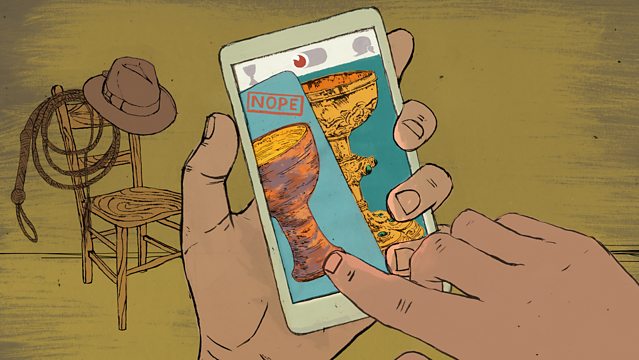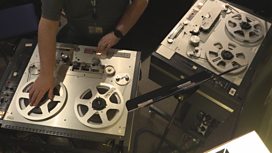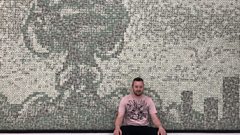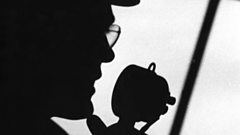The Analogue Human
To celebrate the 100th episode of The Digital Human Aleks Krotoski explores how digital and analogue technologies make us think differently.
To celebrate the 100th episode of The Digital Human Aleks Krotoski explores how digital and analogue technologies make us think differently.
And she'll do it by going 'old school' putting down the keyboard and mouse in favour of audio tape and razor blades. But this programme isn't about nostalgia, she'll be investigating the psychological experiences of using these different technologies.
With the help of artists, musicians and photographers she asks if the endless possibilities we're offered by digital tools are as liberating as we think or paradoxically are they paralysing, making it impossible to choose one product, picture, tindr date over another?
Are we more creative, and decisive when we're forced to be by constraints; as we used to be when camera's shot film with a limited number of shots and tippex was the only way to erase something we'd written?
And are we too readily allowing our digital technologies to decide what's important. Whether in music or on the phone our digital devices strip out the 'noise'. Whether that's the background of where we're making a call, or the sound of fingertips on an instrument. When we lose some of that context what else are we sacrificing? Aleks will aim to find the right balance between the two domains, to make the most of each.
Throughout the programme we'll also offer a glimpse behind the scenes of making a programme where the final assembly uses pre-digital techniques; and the scavenger hunt it required to find the long decommissioned tape machines and the people who remember how to operate them.
Producer: Peter McManus
Last on
More episodes
Previous
Next
![]()
Revisiting analogue tape in the digital age
The team go back to the pre-digital era to explore how tech makes us think differently.
Clips
-
![]()
Phil Hansen - Creativity Born from Constriction
Duration: 06:13
-
![]()
Signal and Noise - where does meaning lie?
Duration: 04:35
Dr Eva Krockow

She breaks down the process of how we make decisions, in a digital and analogue world.
Damon Krukowski

He is also the Author of ‘The New Analog: Listening and Reconnecting in a Digital World’ and he shares with us his insights into how the switch from analogue to digital audio is changing our perceptions of time, space, and meaning in the world around us. He explains that as we pursue perfection with digital technology, we lose layers of meaning to be found in analogue’s 'noise'.
Rosie Matheson

Her on-going project Boys has reached critical acclaim, premiering with a sold-out exhibition, photo-zine and documentary on Dazed in July 2018, whilst one of her portraits from the series won the Portrait of Britain Award. Boys is described by Matheson as “an exploration of boyhood and masculinity, challenging the relationship between males and the idea of masculinity pressured by society”.
She has also spent her time photographing some of the UK’s most exciting up-and-coming artists such as Loyle Carner, Slowthai, Col3trane, and Etta Bond. Previous clients have included Nike, Adidas, Kodak, Sony, Getty, i-D and the Financial Times.
She tells us about the continuing value of film photography, both for the beauty and meaning in the photographs, and the fact that it allows an artist to create their personal vision, without the constant nitpicking or tweaks that can be demanded in the digital realm.
Piers Plowright

He tells us about making radio in the pre-digital world, the power of a compelling story well told, and how the most powerful moments could actually be what, in digital editing, are snipped out without a moment’s thought.
David Sax

He tells us why our honeymoon phase with digital technology may be at an end, and how we are rediscovering the unique benefits of our old analogue technology - stimulating, and focusing creative thought, and allowing us to overcome the niggling perfectionism of the digital age.
Professor Catrinel Haught Tromp

Broadcast
- Mon 10 Jun 2019 16:30����ý Radio 4
Podcast
-
![]()
The Digital Human
Aleks Krotoski explores the digital world





